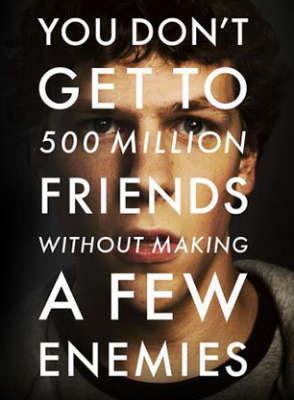Like all of y’all I just read Paul Graham’s SOPA-soaked call for a tech startup that would kill Hollywood. You would have to be a complete idiot to think Hollywood (or at least some part of Hollywood) isn’t ripe for disruption BUT …
“The people who run it are so mean and so politically connected that they could do a lot of damage to civil liberties and the world economy on the way down. It would therefore be a good thing if competitors hastened their demise.”
Damn. What I’m getting from this post is that Hollywood should die, because people are mean. I don’t know about you, but I’ve met plenty of mean people right here in SF Silicon Valley.
Graham recommends, “The best way to approach this problem is to ask yourself: what are people going to do for fun in 20 years instead of what they do now?” After asking a bunch of smart people in the tech industry where they thought the industry would be in 20 years and hearing the same answer from most of them (“Something like Zynga …”) I finally asked Graham and YCombinator partner Harjeet Taggar what they thought people would be doing in 20 years, for fun.
Their answer:
“I’d guess a lot more games. Zynga type games are likely only the start. Console video games are already essentially interactive movies. Smartphones and tablets are making games more accessible than ever, in the future it’ll be bizarre to think that people ever purchased devices with the single function of loading games from a disc.
It’s probably impossible to predict *what* exactly people will be doing in 20 years but it’s likely a safe bet to say that the current model of going to a physical place where the only content available has been selected for me by a group of money men somewhere, won’t be around.”*
What I’ve never understood is this, it is some function of Hollywood, Silicon Valley and the New York media industry to tell human stories and distribute them — they are all symbiotic. If this is the case then why can’t we all just get along?
At the end of the day all three industries feed each other, one provides the content, one (increasingly) provides the distribution and the other covers it all, with some interchange of roles between all three. What is happening now (and what Graham might be conflating) is that there is a conflict between who controls the platform, and therefore distribution, versus who controls production. And the only reason Hollywood has more power here is that it’s been around the longest — the tech industry’s got nothing, so it’s got nothing to lose.
Sure there are some people in the content industry who refuse to admit that their old models don’t work (just like how there are people in the tech industry who work on Bing). But to kill the whole thing off would get rid of a wealth of creative talent skilled in the cinematic portrayal of the human narrative, and replace it with what? A souped up Farmville?
The truth is that both Hollywood and Silicon Valley have valid arguments with regards to digital rights and neither can put itself in the other’s shoes. If Hollywood spends $50 million dollars on a film, it can’t pivot while YCombinator can invest $50K in startups and have 2/3rds of them fail. And even if they do succeed it doesn’t matter, as the tech industry reinvents itself every five years! Hollywood on the other hand …
The real moral to this story is we all should dream, and we should dream like Hollywood but we should invent the future build like Silicon Valley. There’s no YCombinator for film because that kind of business behavior doesn’t work in traditional media. And even the most genius tech people haven’t yet solved the problem of piracy. (If someone has the answer please raise your hand, because you’re going to be the richest person on the planet.)
Please, raise your hand. Anyone? Bueller?
* For the record, I’d rather watch my Instagram feed than watch a movie.
